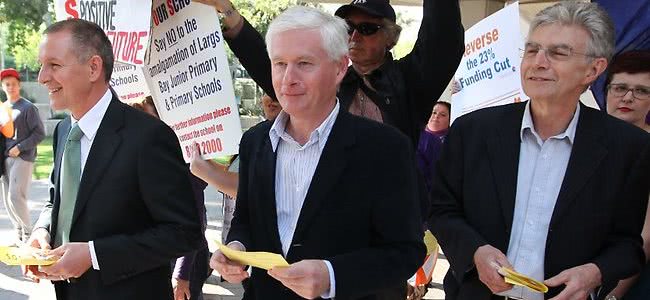It’s been a difficult year for lovers of live music over in South Australia, the last six months has seen the city’s capital experience mixed fortunes as live music venues across Adelaide faced increasing pressure from licensing regulations during a difficult financial climate that has forced some to close their doors permanently.
Now, following on from the news last month that the South Australian Government would be introducing tough new licensing restrictions, the SA Government has now released a draft of new legislations that will add a whole new raft of restrictions on licensed venues and live music hotspots, reports The Shout.
The Late Night Trading Code of Practice proposes new restrictions on the serving times, and quantities of alcohol in an effort to reduce alcohol-related violence and ensure a safer nightlife in the Adelaide CBD.
The new Code of Practice will restrict licensed premises from selling any shots or drinks containing more than 30ml of spirits after 2am, and a new lockout restricting any patrons from entrance after 3am.“Equipment – such as extra CCTV surveillance and metal detectors to screen patrons – to be made a mandatory requirement for any licensed venue operating between midnight and 7am.”
Additionally, all drinks served after midnight will be contained in plastic glasses, and the introduction of a ‘drinks marshall’ to patrol and monitor licensed venues; along with more equipment – such as extra CCTV surveillance and metal detectors to screen patrons – to be made a mandatory requirement for any licensed venue operating between midnight and 7am, introduced as part of the Late Night Trading Code of Practice.
As the SA Government write in the draft: “This code of practice is not intended to place undue burdens on licensees, but rather is designed to ensure that South Australia’s licensed venues are safe and enjoyable for everyone.”
The costs of implementing metal detectors alone can be seen as placing undue burdens on licensees, as unlike the recent mandatory regulations placed on NSW music venues in response to alcohol-related violence – these new regulations are not on targeted problem areas – but on every licensed venue.
The draft for the new code of practice can be viewed from the SA Government Strategic Plan website, and the general public can submit comments and responses to the draft by email or post by the end of the month.
Alcohol-related violence has been a chief concern for Premier Jay Weatherill and the South Australian Government, and the new Code of Practice draft is a part of broader measures to curb increased violence along with more police enforcement and education program targeting the consequences of aggressive behaviour when drunk.
The new safety restrictions and regulations on venues has been the latest since first introducing hefty new liquor licensing fees and tariffs for late night venues; affecting the business and culture of many Adelaide-based clubs and venues.
In response, Business Services and Consumer Minister John Rau introduced potential hope in the grim atmosphere of the city’s dwindling music scene, with the introduction of new, cheaper licenses aimed at creating laneway bars and ‘hole in the wall’ hotspots across Adelaide’s CBD, similar to Melbourne and Sydney’s night culture.
Premier Weatherill then played the white knight and announced plans to introduce a music expert to work in collaboration with the Premier’s office to develop strategies of overcoming newly introduced planning and licensing issues, the very same policing strategies he helped implement.
Glastonbury booker Martin Elbourne was eventually chosen as the ‘thinker in residence’ to investigate strategies to work with the Premier and his cabinet to deal with the licensing issues, creating opportunities for local performers and musicians, and focussing on industry development over the course of several visits to Adelaide.
“Music goes hand in hand with other creative things,” said Elbourne at the time of receiving his new role. “If Adelaide is to thrive, it has to have a creative cluster. It’s musicians, it’s artists, digital companies… anyone creative.”

































